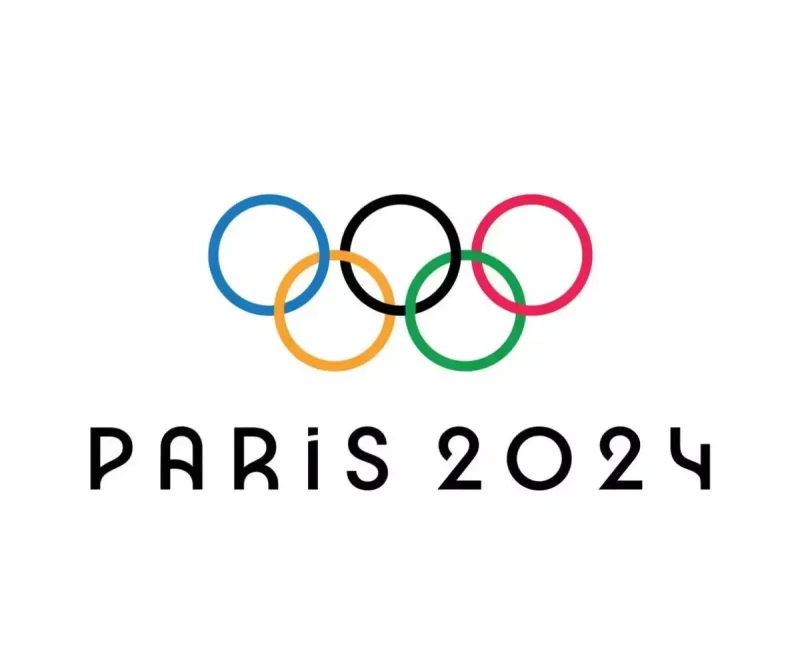Paris Summer Olympics: From July 26 to August 11
The forthcoming international multi-sport event, formally known as the 2024 Summer Olympics and the Games of the XXXIII Olympiad (French: labelled as Paris 2024), will begin in France from July 26 to August 11, 2024. The host city will be Paris, with 16 other cities located throughout Metropolitan France. One subsite is located in Tahiti, an island within the French foreign country and collectivity of French Polynesia. This global event will bring together athletes and spectators worldwide, fostering a sense of international unity and connection.
At the 131st IOC Session in Lima, Peru, the IOC granted Paris the Games on September 13, 2017. The International Olympic Committee (IOC) approved a procedure to simultaneously award the 2024 and 2028 Summer Olympics to the remaining two candidate cities, Paris and Los Angeles, after several withdrawals left them in contention. Paris has a rich Olympic history, having hosted the Summer Olympics twice in 1900 and 1924. This will become the second city to do so (after London hosted the Games in 1908, 1948, and 2012).
These will be France’s sixth hosting of the Olympic Games (three Summer and three Winter) and their first since the Albertville Winter Games in 1992. Paris 2024 will commemorate the centennial of Paris 1924 and Chamonix 1924, which signifies the centennial of the Winter Olympics. Breakdancing will debut in the Paris 2024 Olympics, marking the final Olympics under Thomas Bach’s IOC presidency. Anticipations suggest that the 2024 Games will cost €8.3 billion.
The six potential cities were Paris, Boston, Hamburg, Budapest, Los Angeles and Rome. Withdrawals, political unpredictability, and prohibitive expenses all slowed the bidding process. Boston outbid Los Angeles, San Francisco, and Washington, DC, in the official US bid. Due in part to conflicting emotions within the city, Boston and the USOC mutually decided to withdraw Boston’s bid to host the event on July 27, 2015. After a referendum, Hamburg withdrew its bid on November 29, 2015. Rome announced its withdrawal on September 21, 2016, citing financial issues. On February 22, 2017, Budapest withdrew after gathering more signatures than required for a referendum on a petition opposing the bid.
In response to these withdrawals, the IOC Executive Board convened in Lausanne, Switzerland, on June 9, 2017, to talk about the bid processes for 2024 and 2028. In 2017, the International Olympic Committee proposed simultaneously choosing the host cities for the 2024 and 2028 Olympics. On July 11, 2017, an Extraordinary IOC Session approved the proposal in Lausanne. To decide which city would host the Games in 2024 and 2028 and whether it was feasible to choose the host for both simultaneously, the IOC established a procedure whereby the bid committees for LA 2024 and Paris 2024 met with the IOC.
The Preparation and Development of the Events
Venue for Events
Most Olympic games will occur in Paris and the surrounding metropolis, including Le Bourget, Saint-Denis, Versailles, Vaires-sur-Marne and Nanterre.
The surfing events are anticipated to occur in Teahupo’o village in the French Polynesian overseas territory, which lies 15,716 km (9,765 mi) from Paris, the host city. The basketball preliminary and handball finals will occur in Lille, 225 km (140 mi) from the host city. Marseille, a Mediterranean city 777 km from the host city, will host the sailing and some football games. Five additional cities—Nantes, Décines-Charpieu (Lyon), Saint-Étienne, Bordeaux, and Nice —some of which are home to Ligue 1 clubs, will also host football events.
Security
France, Europol, and the UK Home Office agreed to enable operational information exchange and international law enforcement cooperation during the Games. The agreements called for additional drones and sea barriers to stop small boats from entering the channel illegally. The British Army will also deploy Starstreak surface-to-air missiles for air defence. Related to their preparations for the 2023 Rugby World Cup at the Stade de France, Paris police conducted inspections and auditions within their tactical response unit before the Games.
Qatari Emir Sheikh Tamim bin Hamad Al-Thani signed several agreements to improve security during his visit to France. Poland has promised to provide security troops, including sniffer dog handlers. This supports foreign efforts to guarantee the Games’ safety before the major security demands and counterterrorist measures. To discuss surveillance operations and revitalise the leadership structure of the alliance with Japan, the US Ambassador to Japan, Rahm Emanuel, met with officials and leaders on April 3, 2024, before the Olympics.
The initial plans for the opening ceremony along the Seine faced security concerns. Organisers halved the estimated number of attendees, reducing it from 600,000 to 300,000. They also changed the locations from free viewing to invitation-only. Following the Islamic State’s March attack on Crocus City Hall and multiple threats against the UEFA Champions League quarterfinals, French President Emmanuel Macron hinted in April 2024 that the opening ceremony event might require rescheduling or reorganisation.
Volunteers
Public access to the volunteer platform of the Paris 2024 Olympic and Paralympic Games began in March 2023. For the Games, 45,000 volunteers were predicted to be found worldwide. The Paris Organizing Committee received more than 300,000 applications after closing registration on May 3, 2023—surpassing the number submitted for the previous two Olympics. Between September and December of 2023, applicants received notification of the status of their application. Due to security concerns, organisers turned away more than 800 applicants, including 15 individuals flagged with Fiche S.
The 2024 Olympic Games Opening Ceremony
The opening ceremony is set to start on July 26, 2024, at 19:30 (CEST, GMT+2). The plans for the parade of nations include a boat parade along the Seine, from Pont d’Austerlitz to Pont d’Iéna. Meanwhile, organisers have set the official protocol to take place at Place du Trocadéro in a makeshift “mini-stadium.” They have cautiously scheduled the ceremony to begin outside a traditional stadium environment for the first time. Along with views of Parisian landmarks, the 6-kilometer (3.7-mile) parade route would include cultural presentations. Thomas Jolly will be the director of the 2024 Summer Olympics and Paralympics ceremonies.
The Sports in the 2024 Summer Olympics Programme
In 2024, the Summer Olympics will feature 329 events across 32 sports. This includes the 28 “fundamental” Olympic sports from 2016 and 2020, along with 4 optional sports suggested by the Paris Organizing Committee: surfing, skateboarding, sport climbing, and the debut of breaking. There have been 4 weightlifting events removed. In canoeing, 2 slalom events have replaced sprint events, maintaining a total of 16. They split the previous “combined” event in sport climbing into distinct boulder & lead and speed climbing categories for each gender.
USA Boxing reported in February 2023 that it would not participate in the 2023 World Championships. The International Boxing Association would host this, allowing unrestricted competition for Russian and Belarusian athletes. USA Boxing accused the IBA of trying to undermine the qualification paths approved by the IOC for the 2024 Summer Olympics. Later, the United States was joined by Poland, the Netherlands, Switzerland, Ireland, Great Britain, the Czech Republic, Canada and Sweden.
The Paris Organizing Committee stated that it would have discussions with the IOC and professional esports organisations regarding the potential introduction of competitive events in 2024 when it submitted its bid for the Games in August 2017. The IOC declared in July 2018 that esports would not be considered for the 2024 Olympics. The IOC approved the suggested optional sports of breaking (breakdance), skateboarding, sport climbing, and surfing. The three sports that debuted at the then-upcoming 2020 Summer Olympics—at its 134th Session in June 2019.
Concerns at the 2024 Summer Olympics Game
The 2024 Summer Olympics faced many issues like Civil rights, environmental, and security concerns. Another controversial decision was allowing Israel, Palestine, Ukraine, and Turkey to compete despite ongoing conflicts. Russian and Belarusian athletes were required to compete as neutrals due to Russia’s invasion of Ukraine and the Israel-Hamas conflict.
The post Paris Summer Olympics: From July 26 to Aug 11 appeared first on FinanceBrokerage.

